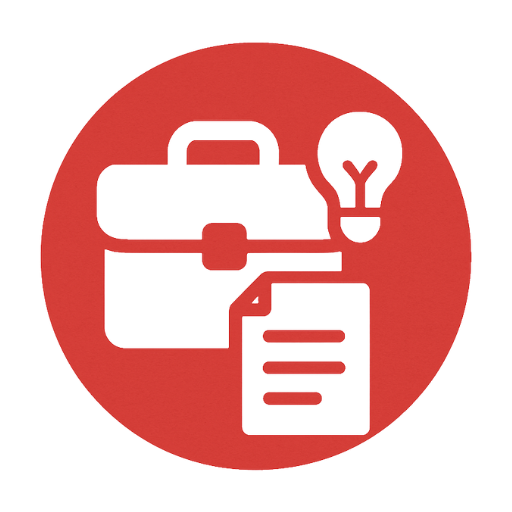Tips for Switching Careers Smoothly

Making a career transition can be both exciting and intimidating. Whatever emotions you’re feeling, there are steps you can take to make the change smoothly.
A well-planned career change is crucial for a successful transition. It involves understanding your motivations, identifying your skills, and exploring new career paths.
By taking a thoughtful and informed approach to switching careers, you can navigate the challenges and opportunities that come with it.
Understanding Why You Want to Switch Careers
Before you decide to career change, it’s key to know why. Reflecting on your reasons is vital for a smooth transition.
Warning Signs That It’s Time for a Change
There are clear signs it’s time for a career change. Feeling unhappy at work, lacking challenge, and being in a bad work environment are some. If you dread going to work or feel not valued, it’s time to think about changing careers.
Job burnout and career misalignment are different but often mixed up. Burnout is feeling exhausted from too much stress and work without balance. Misalignment happens when your job doesn’t match your values, interests, or skills. Knowing the difference helps fix the real problem.
To change careers well, look at your values, interests, personality, and skills. Use tools like the Myers-Briggs Type Indicator (MBTI) and CareerLeader to find your strengths and career paths. By understanding your reasons and spotting warning signs, you can choose a career change wisely.
Assessing Your Transferable Skills and Strengths
Understanding your transferable skills is crucial for a successful career change. These skills are abilities you’ve developed in one area that can be used in another. They show your flexibility and ability to adapt, making you attractive to employers.
Identifying Your Transferable Skills means looking back at your past experiences. This includes work, school, and volunteer work. Think about the skills you’ve used and how they might fit your new career. Skills like communication, organization, and leadership are often very transferable.
Communication and Leadership Skills
Good communication is key in any job. It helps you share ideas, negotiate, and build relationships. Leadership skills, even if you’re not in a management role, show you can lead and motivate. These skills make you stand out to employers.
Problem-solving skills are valued everywhere, showing you can find and solve problems. Being adaptable is also important, as it shows you can handle new situations and challenges. Showing these skills can really help your career change.
By focusing on your transferable skills and strengths, you can show you’re a strong candidate for your new career. Make sure to highlight these skills in your resume, cover letter, and interviews. This will help you move smoothly into your new career.
Researching Potential Career Paths
Thinking about switching careers? It’s key to do your homework. Look into job duties, needed skills, and chances for growth in the fields you’re interested in.
Online tools can make your research easier. Sites like Career.io’s Explore Careers give you deep dives into various careers. They help you see what each path is like.
Understanding Potential Pay Cuts or Increases
Check out the salary range for your dream job. Some jobs pay more but might be stressful or require long hours. Think about your living costs and financial goals when deciding.
Work-Life Balance in Different Fields
Work-life balance is also crucial. Some jobs take up too much time, leaving little for personal life. Find out how different careers affect your balance to choose wisely.
By diving into career research, you can find the right fit. It’s about matching your financial needs, personal goals, and lifestyle.
Networking Strategies for Career Changers
For those switching careers, networking is not just beneficial; it’s essential. Career changers can greatly benefit from targeted networking approaches that build meaningful connections. Effective networking strategies can help you establish a strong professional presence in your new field.
One of the most impactful ways to network is by attending industry events such as conferences, seminars, and meet-ups applicable to your field. These events provide opportunities to meet professionals who are already working in your desired career path. Make sure to prepare an elevator pitch that clearly states your career goals and interests.
Industry Events and Professional Organizations
Joining professional organizations related to your new career can also be highly beneficial. These organizations often provide access to exclusive events, training, and networking opportunities. They can be a valuable resource for learning about the latest trends and best practices in your new field.

Leveraging alumni networks is another effective strategy. Reach out to alumni from your university who are working in your desired field. They can offer valuable insights and potentially introduce you to other professionals in their network. Additionally, participating in community groups related to your new career can help you build connections outside of traditional professional settings.
By implementing these networking strategies, career changers can build a robust network that supports their transition. Remember, the key is to be genuine, consistent, and proactive in your networking efforts.
Acquiring New Skills and Qualifications
Gaining new skills and qualifications can boost your career change chances. It’s key to find and fill any skill gaps as you switch careers.
Online Courses and Certifications are easy and often cheap to get new skills. Sites like Coursera, Udemy, and LinkedIn Learning have many courses. You can learn at your own speed. For example, you might take a course in social media management to improve your marketing skills.
Online Courses and Certifications
Online courses cover many skills, from tech like programming to soft skills like leadership. Certifications, like Google Analytics or HubSpot, show you’re an expert in certain areas. They can make your resume stand out.
Workshops and Boot Camps
Workshops and boot camps offer hands-on learning and networking chances. They’re great for practical skills and building your network. For example, a coding boot camp can teach you coding languages and projects.
By getting new skills and qualifications, you make yourself more employable. You show you’re serious about your new career. Whether through online courses, certifications, workshops, or boot camps, investing in your growth is crucial for a smooth career change.
Tips for Switching Careers Smoothly Without Burning Bridges
Switching careers can seem scary, but with the right plan, you can do it smoothly. It’s key to think about when to make the change and how to handle your notice period well.
When to Start Looking for New Opportunities
It’s important to start looking for new jobs at the right time. First, check if you’re happy with your current job and why you want to change. This will help you know when to start looking.
Think about your finances, the job market, and if your skills are in demand elsewhere. Picking the right time to look for a new job can really help your transition.
How to Manage Notice Periods
Handling your notice period right is key to leaving your job well. Always give two weeks’ notice to let your employer find someone else. Use this time to help with the handover and finish any tasks you have.
Stay professional and keep doing great work. This way, you’ll leave on good terms and keep your professional network strong.
When you move to a new career, you might need to find a way in. Think about internships, volunteering, or part-time jobs to get experience and make connections.
Crafting a Career-Change Resume and Cover Letter
Creating a career-change resume and cover letter needs a smart plan. You must show off your relevant skills and experience. It’s key to highlight skills that can be used in your new field. Also, use industry-specific keywords that fit your new career.
Industry-Specific Keywords and Phrases
Adding industry-specific keywords to your resume and cover letter can help a lot. It makes your application pass through ATS and catch the hiring manager’s attention. Look up the common terms in your new field and add them to your application.
A strong portfolio is a great tool for career changers. It shows your skills and achievements. Make a professional portfolio with your work, projects, certifications, or achievements. It boosts your resume and helps in interviews.
By focusing on portfolio development and making your resume and cover letter fit your new career, you’re on the right path. Remember, a smooth career change needs preparation and a smart job application strategy.
Preparing for Interviews as a Career Changer
As a career changer, you need to prepare well for interviews. You must show your value and excitement for the new career. This is key to standing out.
Using case studies and examples is a smart strategy. Share stories of challenges you’ve overcome. This shows your problem-solving skills and ability to adapt.
For example, talk about a project where you learned new software or worked with a tough team.
Using Case Studies and Examples
These stories not only show your achievements. They also prove you can use your skills in various situations.

Showcasing Your Learning Agility
It’s also important to show your learning agility. Employers want to see you can learn quickly and adapt to new situations. Talk about times you’ve learned new skills or adjusted to new roles.
By focusing on these points, you’ll show you’re ready for your new career. Good preparation and showing your strengths will help you succeed in interviews.
Financial Planning During Your Career Transition
Starting a new career means financial planning is key. It helps you transition smoothly. Good financial management can ease stress and offer a safety net.
Health Insurance Options Between Jobs
Health insurance is a big deal when you’re jobless. You might get COBRA benefits or look at plans on the Health Insurance Marketplace. It’s vital to compare options to get the right coverage for you.
Retirement Account Rollovers and Considerations
What to do with your retirement accounts is another big choice. You could roll over your 401(k) to an IRA or your new employer’s plan. Talking to a financial advisor can guide you to the best choice for your future.
Handling these financial steps lets you dive into your new career with confidence. You’ll know you’re set financially.
Managing the Psychological Aspects of Career Change
Career change is not just about learning new skills. It also involves managing your mindset. Switching careers can make you feel uncertain, scared of failure, and unsure of who you are.
Professional guidance is key in facing these challenges.
Professional Coaches and Career Counselors
They can give you tailored advice, help set achievable goals, and find ways to get past hurdles. For example, Harvard Extension School has webinars and call-in hours for career advice. This shows how helpful talking to experts can be.
Peer Support Groups for Career Changers
These groups are also very helpful. Talking to others who are changing careers can make you feel less alone. They offer advice, emotional support, and motivation.
To handle the emotional side of career change, you need to act. Seek help from professionals and join peer support groups. This way, you can deal with the emotional ups and downs of changing careers more smoothly.
Creating a Realistic Timeline for Your Career Switch
To change careers well, you need a clear plan. This means setting achievable goals and knowing what steps to take. It’s all about reaching your career dreams.
30-60-90 Day Planning
Breaking your career change into parts is smart. The 30-60-90 day plan is great for setting goals. In the first 30 days, learn about your new career.
The next 60 days are for using your new skills and making connections. By the 90th day, you should see big progress and might need to tweak your plan.
Tracking your progress is key during a career change. Set goals and check how you’re doing often. This keeps you on track and helps you make changes if needed.
By doing this, you can celebrate your wins and see what needs work. This makes your career change smoother.
Conclusion: Embracing Your New Career Path
As you move into a new career, staying committed is key. You’ve already made big steps by understanding your reasons, using your current skills, and getting new qualifications. These steps are crucial for a smooth career change.
Believe that all your hard work will lead to your dream job. When you get there, take time to celebrate your efforts. The tips for switching careers smoothly have helped you get here. Now, start your new career with confidence.
Starting a new career means having a positive attitude and a desire to learn. Keep your focus. Your career change will be rewarding, bringing new chances and challenges.






